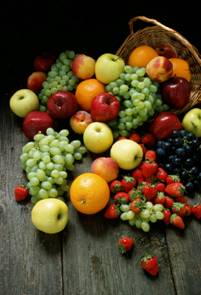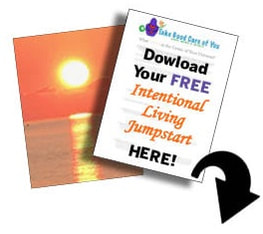|
Today I am inspired to share with you an article which one one level, challenges us to rethink vitamins. On another level, it brings up many questions and deeper issues, which share as an invitation to re-claim or claim for the first time - our power and validity as decision-makers for our own health and wellness. Let’s first read these excerpts from a controversial article by functional and integrative medicine, leader Chris Kessler, entitled, “Throw away your multivitamins and antioxidants!”
 I love the challenge in this article. I don’t know about you, but I easily get caught up in: 1. The intellectualization of health as a purely scientific, one size fits all formula or worse, an impossibly complex combination of factors and changing theories that confound me and lead me into fear, which surely is not serving my health. 2. Giving power for what is good for me to people I don’t know and who don’t know me. I’m alone at my computer doing internet research on multiple sites by supposed experts who all have their own perspective and conclusions. How do I know what they say is good for me? How do I decide? What about relationship as part of our wellness path? Or perhaps we have a doctor we work with who tells us how many mg of calcium, for instance, to take twice a day. This is an interesting one and leads to the power of faith. In my documentary short, “The Curandera of Teotitlan del Valle”, the traditional healer emphasizes the essencial factor of faith in healing. Maybe our allopathic medical practitioner only had one semester of nutrition in medical school, but we give them power and they assert it. Not necessarily bad. If one is in line with what one chooses to have faith in, by feeling in harmony and resonance with it, this will help or allow for healing via the relationship and interaction with that practitioner, whether M.D., traditional healer or nutritionist. In a sense this is a placebo effect. 3. Believing there is a “right” actual answer for me that I need to find and figure out and do in order to be well. 4. Making financial commitments without thinking through my values. The expense of being dependent on so many supplements that I read about for my own health. Is it sustainable economically for me? Do I want to have to work to have enough money to support this habit? (Not that some medications and supplements aren’t and can’t be helpful and crucial. I am not talking about all or nothing thinking.) What about food? Why don’t I believe in the power of food, especially organically grown in nutrient rich soil? 5. The fear that if I don’t take all the supplements I read about that I won’t be well. If thought has power, then is thinking like this helpful to me? 6. Another aspect of external solutions, external authorities is, is it true that I have no natural knowing or inborn right to be considered an authority if not the best authority regarding what is good for me? What food, thoughts, beliefs and activities feel good to me? Why can’t what feels good be a valid cue to what is good? Of course one needs to be discerning around the sensation of feeling good: is it grounded and trustworthy or is it escapist, as in feeling good temporarily from eating half a box of oreo cookies in one sitting? But where is intuition and internal knowing as valid and real in making decisions for our health and healing? These are the questions I have grappled with for my entire adult life, and it’s largely why I was drawn to be a Health and Wellness Coach: I want to help others with what is so important to me because these are important (and challenging) issues that illustrate deep and historic cultural, philosophic, gender and spiritual issues which have informed many of our lives without us even realizing it. The bottom line being: we have bought a story that says we have no power and we are not wise. We are dependent on others to define reality, goodness and rightness for us, and that’s how it is. My purpose in coaching these issues is to challenge this and to facilitate, guide and support clients find their way to their inner truth, power and the trust of that. What do you think about these issues? Could it be that supplements aren’t as good as we’re told and believe? Does it not matter whether science now says they are not overall so effective because what matters is what we believe? How do you feel about what you believe? Why do you believe in what you believe: does it come from acceptance of an external authority, or from a grounded sense, or a combination of these – and are you comfortable with that or does it invite reflection and re-consideration? I'd love to hear your thoughts on these issues. I read every comment and will respond!
1 Comment
7/28/2016 09:30:38 am
Wow, this is a very thought provoking article. I actually just returned from a visit with a gastroenterologist and she was asking me about the medications I took. I realized that I really don't take many, nor am I one for all those vitamins or supplements. As I was reading your article I noted that I am one for eating well, and believing that my food will give me what I need. I'm chuckling as I write this as I am also not the most healthy eater by others standards, but I do what feels right to me. At this moment I'm stuck on what you say about having faith, believing in what feels good, and that's what I do. As I get older my ideas of what is right for me changes as I change, my heath for the most part is good, and I am content. So I'll go with that for now. Thanks for stimulating ideas and challenging thoughts.
Reply
Your comment will be posted after it is approved.
Leave a Reply. |
Robin Rainbow GateI help people midlife and beyond to find their inner power, health and well being through slow, conscious living Ready to live Your True Life?Categories
All
|
|
|
Sign up here for
|
 Take Good Care of You Wellness Website and Contents by Robin Rainbow Gate is licensed under a Creative Commons Attribution-NoDerivatives 4.0 International License. |




